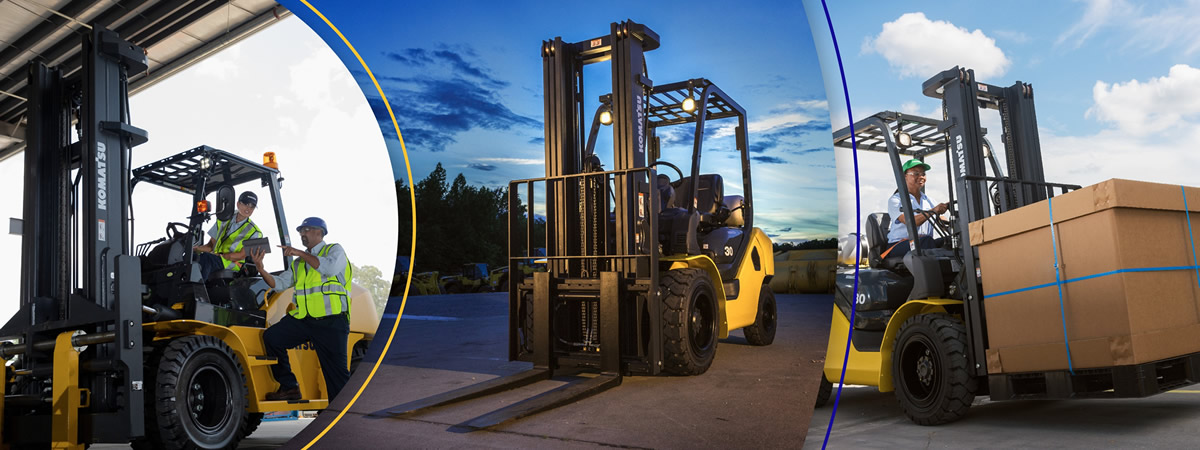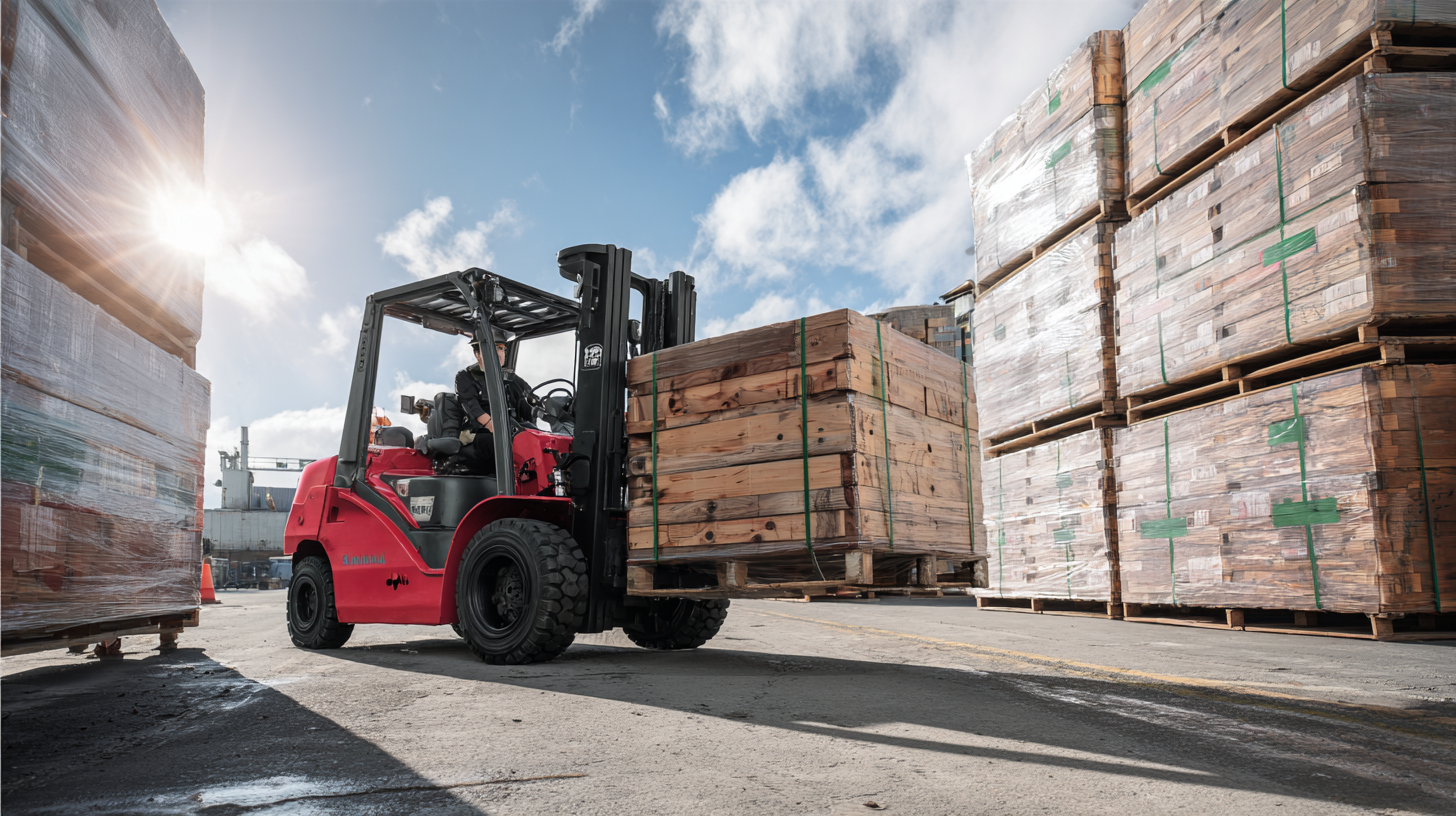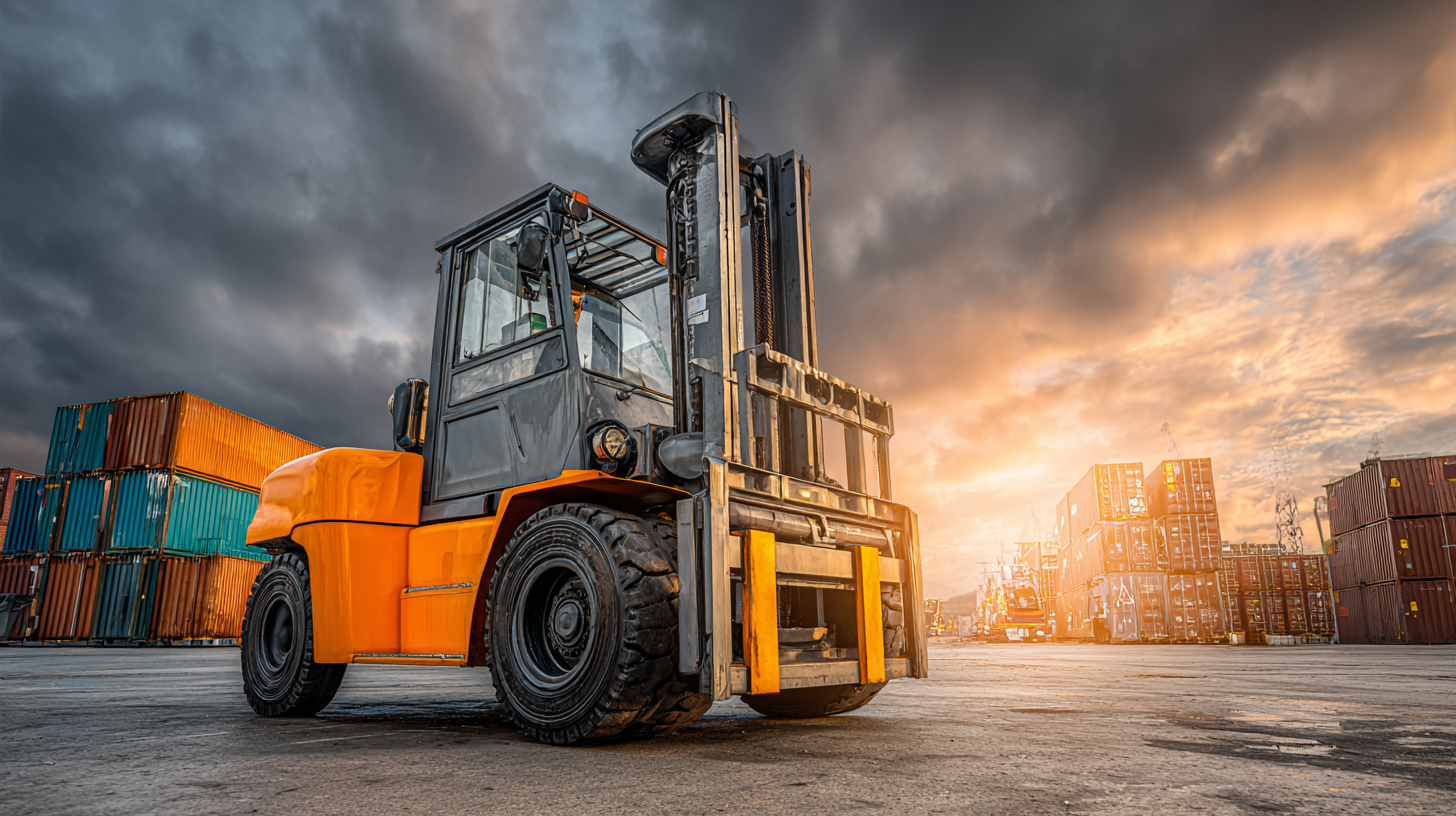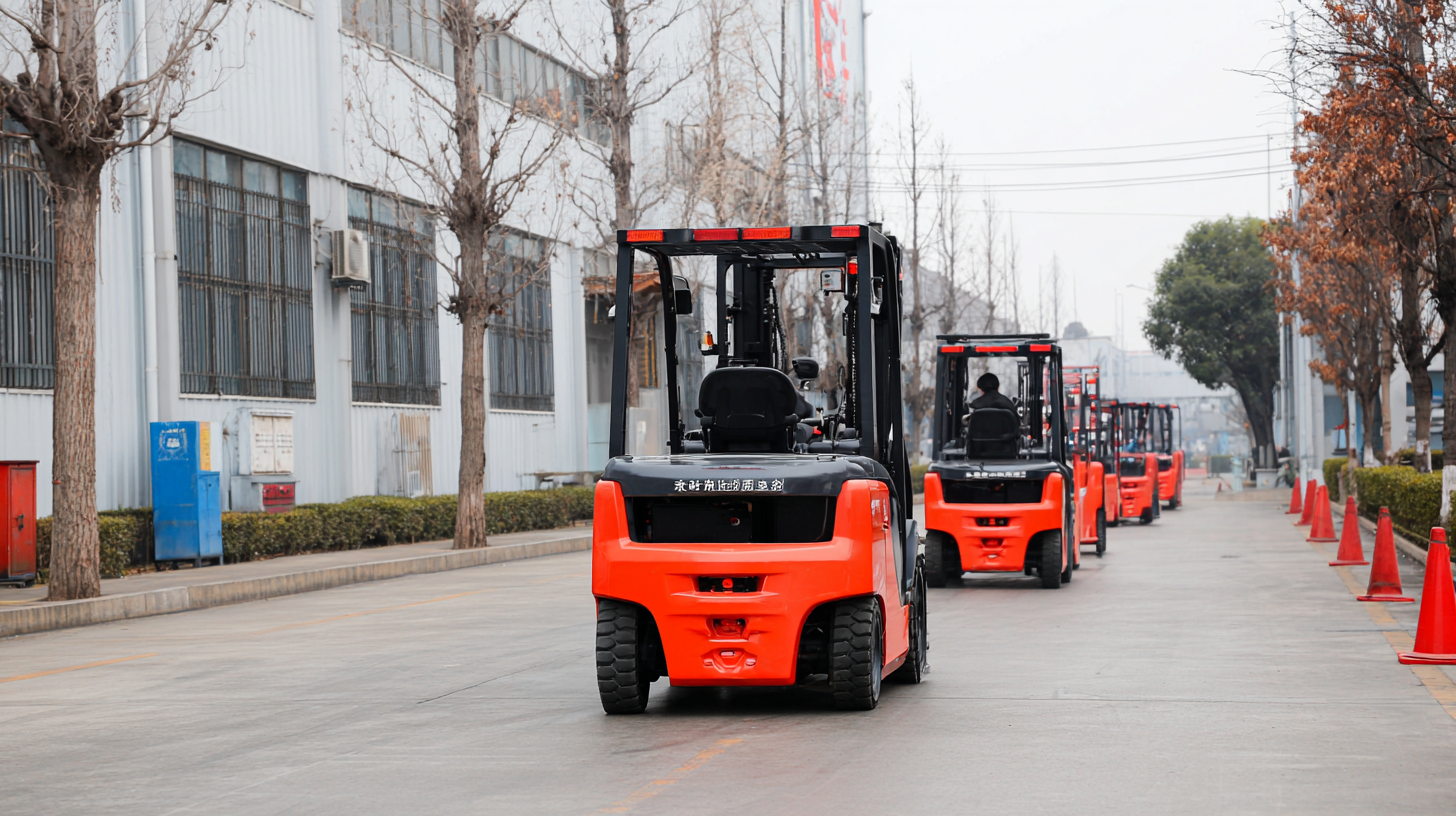
In an era where efficiency and safety are paramount in industrial operations, the importance of effective Fork Lift Truck Training cannot be overstated. According to the International Powered Access Federation (IPAF), improper training is a significant factor in 25% of workplace accidents involving lift trucks. As China continues to emerge as a global leader in manufacturing and logistics, the demand for advanced training programs has surged. Recent reports indicate that the global lift truck market is projected to grow at a CAGR of 5.5%, reaching $62 billion by 2027. This transformation in training practices not only enhances worker safety but also boosts productivity, ensuring that operators are equipped with the skills necessary to navigate increasingly complex supply chains. As we explore the revolution in forklift training excellence in China, it becomes clear that elevating global standards is essential to meet the challenges of a rapidly evolving industry.

In the increasingly interconnected global supply chains, the significance of forklift truck training cannot be overstated. As industries grapple with rising safety standards and economic uncertainties, structured training programs become paramount. Recent analyses reveal that a significant number of forklift-related accidents stem from inadequate training and non-compliance with safety protocols. This underscores the critical need for companies to invest in comprehensive training initiatives that not only safeguard employees but also enhance overall operational efficiency.
As we approach National Forklift Safety Day 2025, discussions surrounding best practices in forklift safety are timely. With industry experts spotlighting the direct correlation between effective training and accident reduction, organizations are urged to prioritize educational opportunities for their workforce. Investing in well-structured training programs ensures that operators are well-equipped to navigate the challenges of modern supply chain operations, ultimately leading to improved safety outcomes and reduced liability for employers. In a landscape where safety directly impacts productivity, it is clear that elevating training standards is essential for sustaining excellence in forklift operations.

In recent years, China has taken significant strides in enhancing the forklift operations industry through innovative training techniques. By integrating advanced technology such as virtual reality (VR) and augmented reality (AR), training programs have transformed how operators learn to maneuver these vital machines. These methods not only make the learning experience more engaging but also provide a realistic simulation of operating conditions, allowing trainees to develop their skills in a safe environment.
Moreover, the implementation of standardized training protocols across different regions has ensured consistency and quality in forklift operator education. With a focus on safety, efficiency, and productivity, these training programs are tailored to meet the specific needs of various industries. As a result, operators are not only becoming more proficient but are also equipped with the knowledge to make informed decisions in high-pressure situations, significantly reducing the risk of accidents and improving overall operational performance in the supply chain.
As China continues to elevate global standards in various industries, the implementation of advanced forklift training programs stands out as a notable success story. Companies across the nation have recognized the importance of equipping their operators with the necessary skills and knowledge to handle heavy machinery safely and efficiently. Through case studies highlighting organizations that have adopted these programs, we see significant improvements in workplace safety and productivity. For instance, a leading logistics firm in Shanghai reported a 30% reduction in workplace accidents after initiating a comprehensive training curriculum that includes both theoretical knowledge and practical applications.

Another fascinating example comes from a manufacturing giant in Guangdong, which developed a bespoke training module incorporating virtual reality technology. This innovative approach allows trainees to simulate real-world scenarios without the risks associated with actual machinery operation. Post-training evaluations revealed that operators not only felt more confident in their skills but also demonstrated significantly enhanced performance metrics. These initiatives underscore China’s commitment to revolutionizing forklift training, setting a benchmark for other countries to aspire to while fostering a safer and more skilled operational environment.
In today's rapidly evolving industrial landscape, the integration of technology into forklift truck training is paramount for enhancing operational excellence. The adoption of cutting-edge training methods, such as virtual reality and simulation-based learning, not only speeds up the training process but also significantly reduces mishaps caused by inexperience. For instance, statistics indicate that effective training can decrease forklift-related accidents by up to 70%. This showcases the critical role that advanced technology plays in enhancing safety and efficiency in material handling operations.
Training initiatives are now being adopted across the globe, with organizations establishing dedicated centers for excellence. Such institutions focus on comprehensive maintenance training and operator skills development, ensuring a workforce that meets the highest industry standards. According to industry reports, companies that invest in employee training see productivity increase by nearly 27%, underscoring the tangible benefits of a well-trained workforce.
**Tips for Effective Forklift Training:**
1. Incorporate technology like virtual reality and simulations to provide immersive training experiences.
2. Regularly update training programs to include safety protocols and practical applications.
3. Foster a culture of continuous learning by encouraging ongoing training for skill enhancement.
In an increasingly globalized economy, the need for standardized forklift truck training has never been more pressing. As companies expand their operations across borders, it becomes essential to cultivate a workforce that is not only skilled but also well-versed in safety protocols that transcend regional practices. Future trends indicate that the evolution of training standards will hinge on adopting a comprehensive approach that combines technological advancements with international best practices. These include virtual reality simulations and adaptive learning modules that cater to diverse learning styles and operational environments. Furthermore, collaboration between countries will shape a unified framework for forklift training that emphasizes safety, efficiency, and environmental considerations. As China takes the lead in redefining these standards, the focus must be on developing curricula that are both innovative and adaptable. The emphasis on a global perspective in training will not only enhance operational safety but also improve productivity in the logistics and warehousing sectors worldwide. This forward-thinking approach will ensure that forklift operators are prepared to meet the demands of an ever-evolving market while maintaining the highest standards of operational excellence.
Content © 2025 Komatsu. All Rights Reserved
